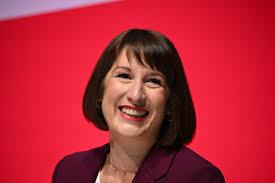Rachel Reeves: A Pivotal Figure in Current UK Politics

Introduction
Rachel Reeves has emerged as a significant force in UK politics as a member of the Labour Party and the Shadow Chancellor of the Exchequer. Her increasing prominence reflects a shift in the political landscape as Britain navigates economic challenges and seeks visionary leadership. Understanding Rachel Reeves’ role is crucial as she positions herself to influence the future policies of the UK.
Background and Career
Born on February 13, 1979, in Lewisham, London, Rachel Reeves studied at the University of Oxford, where she earned a degree in Philosophy, Politics, and Economics. Prior to entering politics, Reeves worked in finance and public policy, including a position at the Bank of England. She was first elected as the MP for Leeds West in 2010, quickly establishing a reputation for her intellect and dedication to economic issues.
Impact as Shadow Chancellor
As Shadow Chancellor, appointed in April 2020, Reeves has focused on presenting Labour’s economic vision amid a backdrop of rising inflation and post-pandemic economic recovery. She has emphasised the importance of fiscal responsibility, advocating for sustainable investment in green technologies and public services. In recent speeches, she has called for clarity over the UK’s fiscal policies and urged the government to safeguard living standards during challenging economic times. Furthermore, her proposals for job creation through a green jobs revolution and reforming the energy market aim to address both environmental concerns and employment issues.
Recent Developments
In recent weeks, Reeves has delivered key addresses at various economic forums, drawing attention to the impact of the cost-of-living crisis on households. She has been vocal in calling for a windfall tax on oil and gas companies to aid struggling families, sparking debate across party lines. Observers note that her policies resonate well with the electorate as Labour seeks to position itself as a credible alternative to the current Conservative government.
Conclusion
Rachel Reeves stands as a formidable candidate in the arena of UK politics, embodying the aspirations of a party seeking renewal and relevance. As she navigates complex economic challenges and strives to present a unified Labour vision, her influence is expected to grow. This critical juncture may define her legacy, especially if Labour regains power. Readers should keep an eye on her developments, as they could significantly shape the future political and economic landscape of the United Kingdom.
